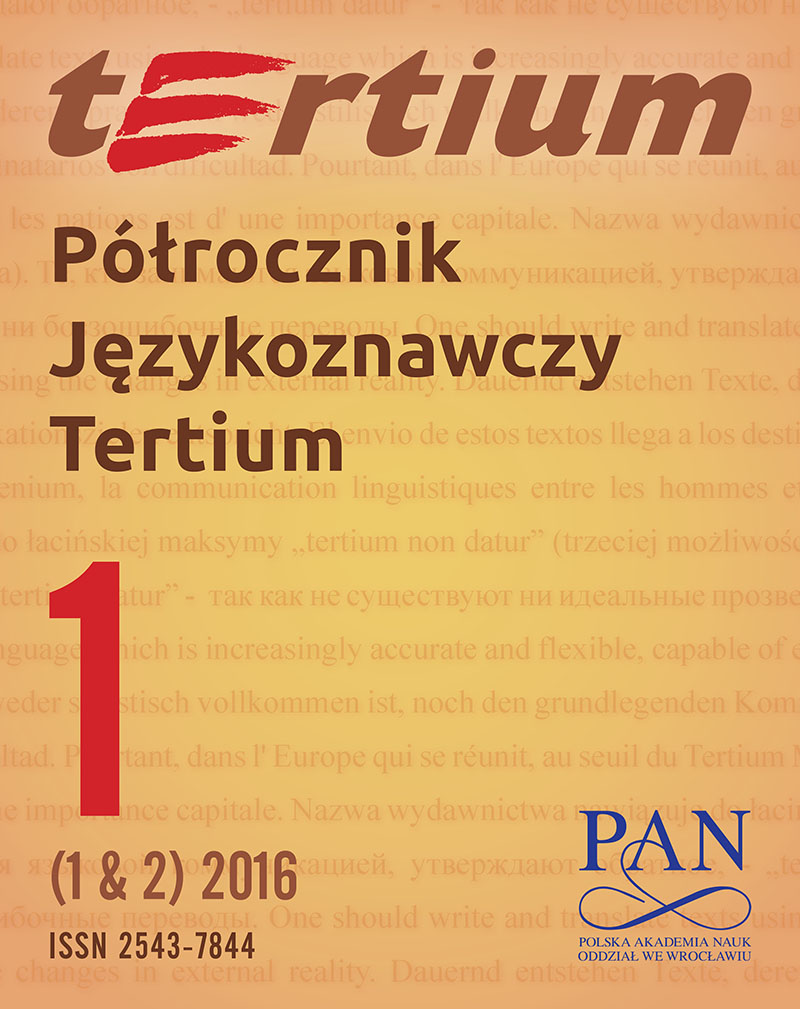Czy językoznawstwo jest nauką przeterminowaną?
Is Linguistics an “Overtermed” Science?
Author(s): Dorota SzumskaSubject(s): Language and Literature Studies, Theoretical Linguistics, Applied Linguistics, Pragmatics, Descriptive linguistics, Philology
Published by: Krakowskie Towarzystwo Popularyzowania Wiedzy o Komunikacji Językowej Tertium
Keywords: term; terminology; metalanguage;definition;
Summary/Abstract: Artykuł jest próbą odpowiedzi na pytanie, czy zauważalny przyrost zbioru terminów we wszystkich praktycznie subdyscyplinach nauki o języku jest istotnie przerostem, a więc winien być traktowany w kategoriach nadmiaru, czy też raczej jest efektem rozwoju tzw. podejścia fasetowego/synkretycznego, promującego wieloaspektowość rozważań lingwistycznych, a więc w naturalny sposób wpływającego na rozbudowę ich metajęzyka. Przedstawione rozważania konkluduje stwierdzenie, że zasadnicze kryterium oceny kondycji warstwy terminologicznej językoznawstwa winno mieć nie tyle charakter ilościowy, ile jakościowy, co oznacza, że powinno być nim nie tylko zaplecze pojęciowe, którego dany termin jest wykładnikiem, ale także stopień jego „usieciowienia”, czyli wpisania się w cały aparat konceptualnometodologiczny teorii, której jest wytworem. // In view of the growing number of new terms in practically all areas of linguistic research, it is legitimate to ask whether what we have to do with is terminological overkill or whether the accretion of terms is due to the development of the facet-oriented/syncretic approach, which highlights the multifaceted character of linguistic inquiry and thus naturally promotes the expansion of its metalanguage. The paper attempts to answer this question and concludes by stating that the assessment of linguistic terminology should be based on qualitative rather than quantitative criteria: the value (usefulness, adequacy, relevance) of a term should be assessed not only on the basis of the conceptual content it is the exponent of, but also its “networking power” i.e. by estimating how well it fits into and enhances the entire conceptual and methodological framework of the theory that introduced it.
Journal: Półrocznik Językoznawczy Tertium
- Issue Year: 1/2016
- Issue No: 1&2
- Page Range: 22-28
- Page Count: 7
- Language: Polish

